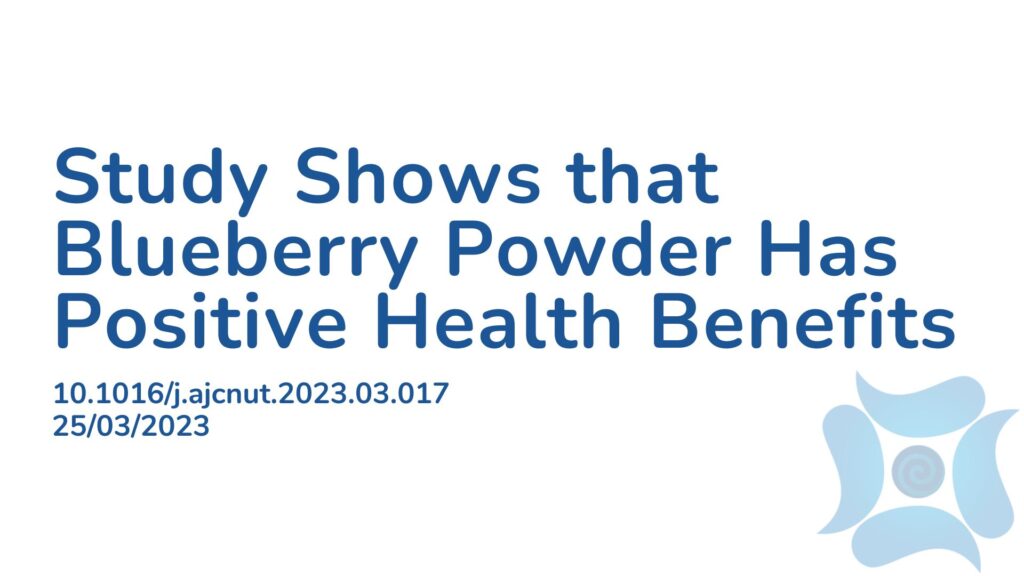Summary:
This randomized controlled trial was conducted in 61 healthy adults to quantify the health impacts of the polyphenols found in blueberries. The participants received either 26g of wild blueberry powder or a placebo which contained no polyphenols. The researchers measured vascular and cognitive function, blood pressure, blood flow to the brain and any changes to the gut microbiome. The results showed there was a significant reduction in blood pressure and enhanced cognitive function such as memory recall in the blueberry powder group. The same participants also exhibited better accuracy on tasks. No changes to the gut microbiota were found. The results concluded that intake of a 26g blueberry powder which is the equivalent to 178g of fresh weight blueberries, improves vascular and cognitive function and decreases blood pressure in healthy older individuals.
Abstract:
Background: Evidence suggests that the intake of blueberry (poly)phenols is associated with improvements in vascular function and cognitive performance. Whether these cognitive effects are linked to increases in cerebral and vascular blood flow or changes in the gut microbiota is currently unknown. Methods: A double-blind, parallel randomized controlled trial was conducted in 61 healthy older individuals aged 65–80 y. Participants received either 26 g of freeze-dried wild blueberry (WBB) powder (302 mg anthocyanins) or a matched placebo (0 mg anthocyanins). Endothelial function measured by flow-mediated dilation (FMD), cognitive function, arterial stiffness, blood pressure (BP), cerebral blood flow (CBF), gut microbiome, and blood parameters were measured at baseline and 12 wk following daily consumption. Plasma and urinary (poly)phenol metabolites were analyzed using microelution solid-phase extraction coupled with liquid chromatography–mass spectrometry. Results: A significant increase in FMD and reduction in 24 h ambulatory systolic BP were found in the WBB group compared with the placebo group (0.86%; 95% CI: 0.56, 1.17, P < 0.001; −3.59 mmHg; 95% CI: −6.95, −0.23, P = 0.037; respectively). Enhanced immediate recall on the auditory verbal learning task, alongside better accuracy on a task-switch task was also found following WBB treatment compared with placebo (P < 0.05). Total 24 h urinary (poly)phenol excretion increased significantly in the WBB group compared with placebo. No changes in the CBF or gut microbiota composition were found. Conclusions: Daily intake of WBB powder, equivalent to 178 g fresh weight, improves vascular and cognitive function and decreases 24 h ambulatory systolic BP in healthy older individuals. This suggests that WBB (poly)phenols may reduce future CVD risk in an older population and may improve episodic memory processes and executive functioning in older adults at risk for cognitive decline.
Article Publication Date: 25/03/2023
DOI: 10.1016/j.ajcnut.2023.03.017



